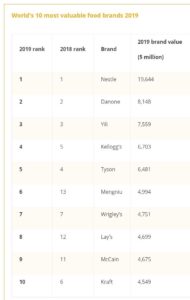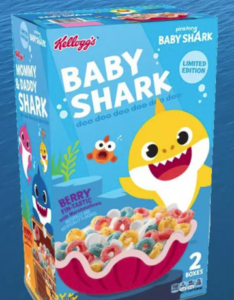Weekend reading: FoodNavigator-USA’s Special Edition on Meal Kits
If you have been reading FoodPolitics.com for long, you know that I love collections of industry newsletter columns on specific topics. This one is on meal kits. If you’ve never tried one, these are boxes of ingredients delivered to your door with recipes for what to do with them.
I’m not a user. I tried two different kinds. I have to admit that they cooked up into delicious meals. But, I could not believe the number of bowls and pots I needed to make them, the enormous mess I had to clean up, and the piles of packaging that I had to throw out.
With that said, some of them are doing pretty well, and some are trying new things, according to these articles from FoodNavigator-USA’s terrific writers.
Special Edition: What’s for dinner tonight? The meal kit (r) evolution
Meal kit brands have tapped into a consumer need, but some have struggled to build a viable business model, with subscription based home delivery firms finding it hard to retain customers, and retailers finding it hard to manage shrink on in-store meal kits. The rapid growth of services from GrubHub to UberEats enabling consumers to order pre-prepared food for delivery in 20 minutes without a subscription has also presented consumers with options that didn’t exist when many meal kit brands got started. So where does the market go from here?
- Home Chef: Our instore meal kit business could be bigger than our ecommerce business in pretty short order: Home Chef meal kits are now available in more than 1,000 Kroger stores targeting the significant subset of consumers that buy into the meal kit concept but don’t want to commit to a subscription, or don’t want to plan meals so far ahead, says Home Chef chief revenue officer Rich DeNardis… Read
- Meal kit co Purple Carrot acquired by Japanese online grocer for $12.8m (with $17.2m to follow if earn-out goals are met): Plant-based meal kit co Purple Carrot has been sold to Japan’s largest meal kit and organic food delivery service Oisix ra daichi for an upfront payment of $12.8m, with another $17.2m due in 2021 if it achieves unspecified earn-out* goals… Read
- Blue Apron’s stock pops after partnering with Beyond Meat, but can it salvage the company’s stock? Beleaguered meal kit company Blue Apron’s stock price surged 36% overnight after announcing July 16 that upcoming menus would feature the popular plant-based burger from Beyond Meat, which also saw a 3.6% bump in its stock in the same period… Read
- Chef’d and True Chef meal kits to ‘double if not triple’ retail footprint this year: True Food Innovations will steam ahead expanding its retail offering of Chef’d and True Chef meal kits this year and will also reveal an exclusive licensing deal with a major CPG brand, its president says… Read
- Sun Basket expands beyond dinner to better reach ‘all people in the US interested in healthy eating’, says CMO: Meal kit company Sun Basket has expanded its offerings from ready-to-make dinners to an online market of breakfast, lunch, and snack options created in collaboration with partner brands including bone broth and noodle company Nona Lim, fresh pasta brand Tallutos, soy producer Hodo Foods, and Hu Chocolate… Read
- Meal delivery service Veestro shares three strategies for making a startup profitable quickly: Starting a business is one thing, but making it profitable is another, and one which often requires some trial and error, according to Monica Klausner, the co-founder of the plant-based meal delivery service Veestro… Read
- Sun Basket seals $30m Series E investment ramping up automation, personalization, and healthy meal offerings: Meal kit service Sun Basket has closed $30m in a Series E investment led by PivotNorth Capital to accelerate its direct-to-consumer business offering AI-powered meal personalization and meal plans from breakfast to dinner… Read
- Blue Apron to trial same-day on demand delivery service in the Bay area: Blue Apron will pilot a same-day on-demand service in the Bay Area enabling consumers to order meals by noon for delivery the same evening in an ongoing attempt to reach customers that buy into the meal kit concept but don’t necessarily want to commit to a subscription… Read
- Giant Food amps up fresh offer in new store concept: ‘We’re competing with everyone that sells food’: We’re no longer a nation of pantry stockers. Many Americans don’t know what’s for dinner tonight, never mind next week, and with grocers now competing with everyone from GrubHub to IKEA, is it time for a radical rethink of the traditional supermarket layout as the lines between food retail and food service continue to blur?.. Read
- Instore meal kit sales reached $93m in 2018, says Nielsen: US sales of in-store meal kits reached $93m in 2018, according to the latest Nielsen data, with 187 new retail meal kit items introduced during the year as high-profile brands sought to reach consumers that like the concept, but don’t want to commit to an online subscription… Read
- eMeals: We’re offering inspiration, curation, and delivery; but you have to chop your own carrots…Preparing delicious healthy home cooked meals every night requires inspiration, time and energy: things most working people are short of, hence, the growth of meal kits. But not everyone can afford them, is comfortable with the amount of packaging they create, or wants to commit to a subscription over the long-term, says Forrest Collier, CEO of meal planning and grocery shopping platform eMeals… Read
- OpenTable hops on mobile food ordering wagon: Online restaurant reservation company OpenTable is expanding into food delivery and pick-up services by partnering with Caviar, Grubhub, and Uber Eats… Read
- Grubhub’s ‘State of the Plate’ report: Orders of the Impossible Burger up 82% year on year: Grubhub has seen a significant increase in vegan and plant-based food orders in the past year based on user data of more than 500,000 food orders placed through the mobile app on an average day… Read




